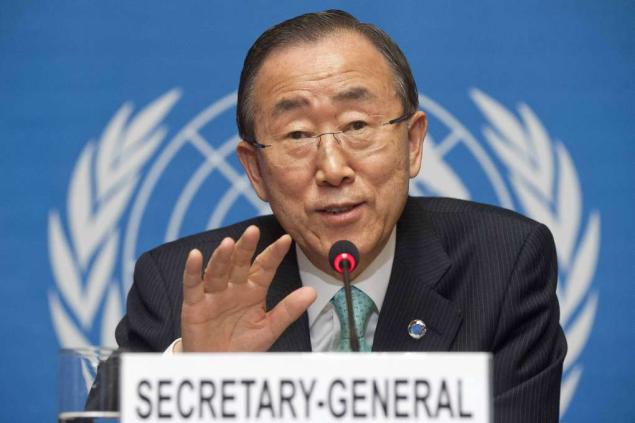The UN Secretary-General, Ban Ki-Moon, on Monday expressed serious concern over the increasingly restrictive environment in which media workers operate in many countries.
In his message on World Press Freedom Day observed across the globe on May 3, Ban urged governments, politicians, businesses and citizens to commit to nurturing and protecting an independent and free media.
He said that constraints on freedom of expression placed shackles on progress itself.
“Each year, we observe World Press Freedom Day to protect the independence of the media and to honour media workers who risk and have lost their lives in the exercise of their profession.
“On this World Press Freedom Day, without this fundamental right, people are less free and less empowered.
“With it, we can work together for a world of dignity and opportunity for all,” he said.
Ban stated that this year’s celebration coincided with three important milestones – the 250th anniversary of the world’s first Freedom of Information Law, “covering both modern-day Sweden and Finland’’.
The others are the 25th anniversary of the adoption of the Windhoek Declaration of Press Freedom Principles, and the first year of implementing the Sustainable Development Goals.
“Press freedom and the free flow of information are necessary not only to inform citizens about the Goals, but to enable them to hold their leaders accountable for fulfilling the pledges they have made.
“The media, including, and increasingly, new on-line media, serve as our eyes and ears.
“We all benefit from the information they provide. A free, independent and safe media environment is essential.
“Yet, all too often, journalists are threatened, harassed, obstructed or even killed in the pursuit of information.
“Many languish in detention, some in appalling conditions, for shedding light on governance failures, corporate malfeasance or societal problems,” he said.
He added that human rights, democratic societies and sustainable development depended on the free flow of information.
According to Ban, the right to information depends on press freedom.
The News Agency of Nigeria (NAN) reports that a report released by Reporters without Borders (RSF) reveals that no fewer than 110 journalists were killed around the world in 2015 alone.
It said that 67of the journalists were killed in-the-line-of-duty, while 43 died in circumstances that were unclear.
It added that another 27 non-professional “citizen-journalists” and seven other media workers were also killed during the period.
In the report, the group warned that more journalists were being deliberately targeted for their work in supposedly peaceful countries.
RSF said that the high toll was “largely attributable to deliberate violence against journalists and demonstrates the failure of initiatives to protect media personnel’’, and called on the UN to take action.
On its part, the UN said that no fewer than 700 journalists had been killed in the last decade.
It said that one journalist “is killed every five days, simply for bringing news and information to the public’’, and that many journalists perished in the conflicts they covered so fearlessly.

